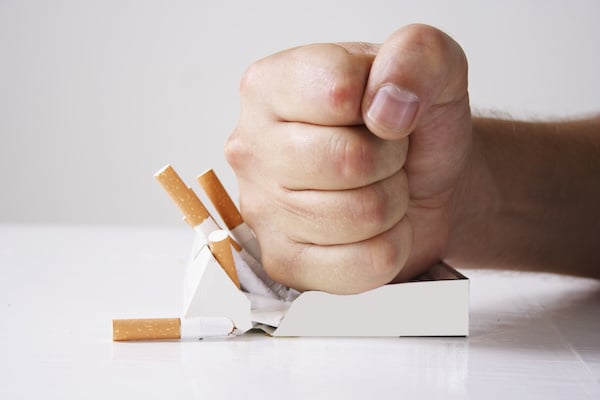

The results are in! This September study concluded that most people who’re trying to quit smoking without aid will supplement their need for nicotine with high-calorie, fatty junk foods. While our customers trust that vaping to quit smoking yields better results, this study supports that quitting cold turkey shocks the body, increasing the user’s chances of gaining weight and instilling poor eating habits. Here’s what we learned.
The study
A new study from the University of Minnesota found that quitting smoking corresponds with a poorer diet and a higher potential for weight gain during the commencing stages of this transition. This is because the same part of the brain (opioid system) that’s responsible for addiction is also responsible for appetite regulation. Anyone who has attempted to quit smoking before knows all too well that the symptoms of nicotine withdrawal can be overbearing, which is why ex-smokers strongly prefer to eat fatty, sugary foods to fill this void.
There were both smoking and non-smoking participants included in the study, as well as individuals ranging between the ages of 19 and 75. All subjects were asked to stop using nicotine for 24 hours and received either a placebo or 50mg of naltrexone, a drug that’s commonly used to treat patients with substance addiction problems. At the end of two sessions, participants were offered the choice of a variety of salty, sweet, and fattening snacks.
What were the results?
The study was led by Dr. Mustafa al’Absil, a licensed psychologist and professor in the Department of Family Medicine and Biobehavioral Health at the University of Minnesota Medica School, Duthus Campus. The findings were published in the Journal of Drug and Alcohol Dependence.
“We looked at whether or not acute nicotine withdrawal increases the intake of junk food — high in salt, fat, and sugar — and how the stress-relieving receptors of the opioid system are involved,” al’Absi said. “Mitigating these challenges during the treatment process will help patients quit smoking while understanding their eating habits and encourage healthier decisions.”
The conclusion of the study found that those who were experiencing extreme nicotine withdrawals consumed far more calories when compared to those who had taken naltrexone.
Weight gain or fear of weight gain after quitting smoking is a factor that contributes to smokers’ relapse and returning to regular combustible cigarette use.
Can you relate to the study above? Vaping to quit smoking provides a controlled nicotine substitution, allowing the user to select a nicotine strength that fulfills their needs, with the ability to slowly lower it over time. That way fear of weight gain doesn’t need to be a deciding factor that keeps you from quitting smoking.
What other remedies have you tried to combat nicotine withdrawals? Drop a comment in the section below to discuss.
The post Quitting Smoke Without A Plan Leads to Weight Gain appeared first on Blog Vape-Ecigs.




